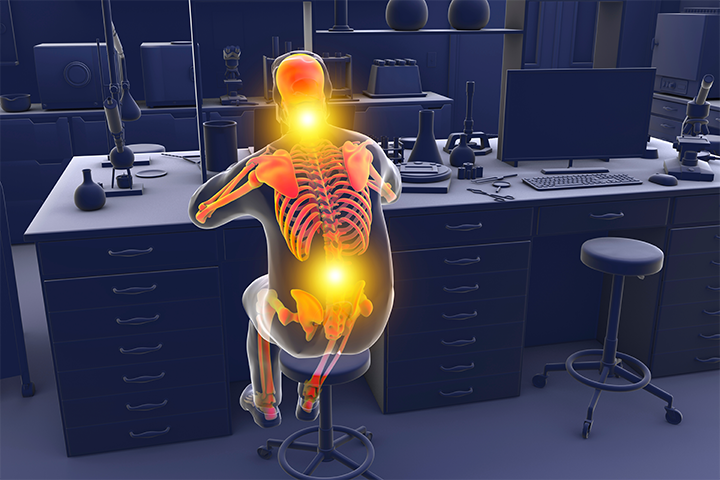Chronic pain cantake a toll on your body and mind. But you don't have to handle it on your own. There's help for chronic pain.
What Is Chronic Pain?
Chronic pain is constant or recurring physical pain that lasts three months or longer. You can feel pain anywhere in the body and it can come from different sources. No matter the source, the goal to treat pain is to reduce it and help you function better.
The most common types of chronic pain are caused by:
- arthritis
- back or neck problems
- disease or health conditions like fibromyalgia
- cancer
- headaches and migraines
- infections
- nerve damage
- previous surgery
Chronic Pain and Your Mental Health
Chronic pain can be hard to deal with and affects your mental health. Common issues include low self-esteem, depression and anger. Other things that people with chronic pain can struggle with are:
- anxiety
- fatigue
- mood changes
- sleep disturbances
- substance misuse
This may cause behavior changes that make it harder to cope with the pain. It helps to talk about your concerns and feelings with family members, friends or a health care professional.
Get Treatment
Seek help if you're having chronic pain. A health provider can help you manage your pain. The type of provider depends on the type and source of your pain. Talk to your Primary Care Provider about the right treatment plan for you.
Medicines including antidepressants or prescription pain relievers may help. Your provider might first try treatments that don't include potentially addictive medications like opioids. Follow your provider's instructions when taking medications, including those sold over the counter.
Treatment therapies can help ease pain.
- Physical therapy helps through stretching and muscle building activities.
- Occupational therapy teaches you different ways to complete tasks to reduce pain and avoid more injuries.
- Behavioral therapy will share ways to relax and cut your stress level to help your pain.
Routine mental health screenings and treatments are a key part of effective chronic pain treatment. Seeing a mental health professional can help you:
- challenge unhelpful thoughts about pain
- track stress triggers that can increase pain
- learn relaxation techniques to keep stress levels under control
- make lifestyle changes so you can continue to work and play
- manage sleep better
- start goal setting
Don't isolate yourself. Pain can make you feel like not leaving the house but spending time with family and friends can help your mental and physical health.
Try these things to help manage your pain:
- Join a support group for people who share your health problem.
- Make time for activities that you find relaxing.
- Spend time outdoors to recharge.
- Prioritize good quality sleep. Lack of sleep can make stress and fatigue worse.
Some people find relief from stretching, yoga, tai chi or meditation. You might need to try them for several weeks to see a change. Check with your health provider to make sure any new activity you start won't make your pain worse.
Resources for TRS-Care and TRS-ActiveCare

Provider Finder®
If you need help finding a provider, use Provider Finder® to search by location, gender and specialty. A Personal Health Guide can help you find an in-network provider 24/7. Call 1-866-355-5999 or chat through the BCBSTX App.
Use Your Health and Wellness Tools
Health and wellness programs that can help with pain that come with your health plan – at no extra cost.
Resources for TRS-Care Medicare Advantage

Find a Provider
Call UnitedHealthcare at 1-866-347-9507, TTY 711, 7 a.m.–6 p.m. CT, Monday–Friday, and they can help you find a provider. To see if your provider is part of the UnitedHealthcare network, you can call UnitedHealthcare or sign in or register on your member website at TRS-Care Medicare Advantage by UnitedHealthcare and click on Find a provider.